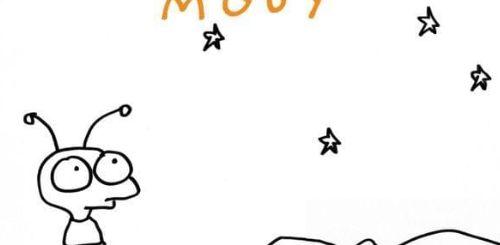Flower by Moby Lyrics Meaning – Unearthing the Enigmatic Roots of Repetition
Lyrics
Last one squat, gotta tear the ground
Green Sally up and green Sally down
Last one squat, gotta tear the ground
Green Sally up and green Sally down
Last one squat, gotta tear the ground
Green Sally up and green Sally down
Last one squat, gotta tear the ground
Green Sally up and green Sally down
Last one squat, gotta tear the ground
Green Sally up and green Sally down
Last one squat, gotta tear the ground
Green Sally up and green Sally down
Last one squat, gotta tear the ground
Green Sally up and green Sally down
Last one squat, gotta tear the ground
Old Miss Lucy’s dead and gone
Left me here to weep and moan
Green Sally up and green Sally down
Last one squat, gotta tear the ground
Green Sally up and green Sally down
Last one squat, gotta tear the ground
Green Sally up and green Sally down
Last one squat, gotta tear the ground
Green Sally up and green Sally down
Last one squat, gotta tear the ground
Green Sally up and green Sally down
Last one squat, gotta tear the ground
Old Miss Lucy’s dead and gone
Left me here to weep and moan
Green Sally up and green Sally down
Last one squat, gotta tear the ground
Green Sally up and green Sally down
Last one squat, gotta tear the ground
Green Sally up and green Sally down
Last one squat, gotta tear the ground
Green Sally up and green Sally down
Last one squat, gotta tear the ground
Green Sally up and green Sally down
Last one squat, gotta tear the ground
Old Miss Lucy’s dead and gone
Left me here to weep and moan
Green Sally up and green Sally down
Last one squat, gotta tear the ground
Green Sally up and green Sally down
Last one squat, gotta tear the ground
Green Sally up and green Sally down
Last one squat, gotta tear the ground
Green Sally up and green Sally down
Last one squat, gotta tear the ground
Green Sally up and green Sally down
Last one squat, gotta tear the ground
Green Sally up and green Sally down
Last one squat, gotta tear the ground
Green Sally up and green Sally down
Last one squat, gotta tear the ground
Green Sally up and green Sally down
Last one squat, gotta tear the ground
Green Sally up and green Sally down
Last one squat, gotta tear the ground
Green Sally up and green Sally down
Last one squat, gotta tear the ground
Green Sally up and green Sally down
Last one squat, gotta tear the ground
Green Sally up and green Sally down
Last one squat, gotta tear the ground
Old Miss Lucy’s dead and gone
Left me here to weep and moan
Moby, an artist no stranger to the fabrication of hauntingly evocative tracks, gifts the sonic landscape a minimalist yet potent workout in the form of ‘Flower.’ On the surface, this piece seems to traverse a straightforward path, its repetitive structure echoing the workouts it often soundtracks. However, beneath its rhythmic cadence and seemingly simple lyricism lies a deeper exploration of persistence, history, and the human experience.
While ‘Flower’ rarely deviates from its concise and guiding verse, a closer examination reveals layers that go beyond mere words and beats. This exploration peels back the hypnotic repetition to uncover the hidden dimensions within Moby’s artistry and the cultural fabric it both reflects and weaves.
The Seductive Power of Repetition
On a first listen, ‘Flower’ might captivate with its strict formula; a meditative mantra set to music. This technique, at its core, is reminiscent of traditional work songs, where repetition serves as a participatory tool both in labor and in maintaining historical narratives. Moby’s choice to employ this method is not just for music’s sake, but as a nod to the past—a beacon for continuity in the modern age.
The track’s hypnotic quality can lull the listener into a trance-like state, the repetition reinforcing attention not on novelty, but on the moment. This aspect of the song becomes a mirror, reflecting our own tendencies towards routines and the comfort found within them.
The Gritty Texture of the ‘Last One Squat’
The phrase ‘Last one squat, gotta tear the ground’ serves as a directive, a call to action that symbolizes resilience. The visual of tearing the ground conveys a sense of urgency and strength, suggesting a deep rootedness that must be overcome or embraced. It’s an imperative statement, pushing listeners to dig deep, to find that impetus to keep moving, to persist against what feels immovable.
Repeated throughout the track, this line’s enduring spirit seems to energize and encourage. It speaks volumes to the indomitable will of an individual facing repetition’s monotonous challenge, pressing ahead regardless of the heaviness they must lift. It’s an anthem for the relentless human spirit in face of life’s burdensome repetitions.
The Haunting Elegy of Old Miss Lucy
Old Miss Lucy’s spectral presence in the song brings a stark turn from the buoyant repetitions of Green Sally. Her demise, paired with the narrative ‘left me here to weep and moan,’ introduces the cyclical nature of grief and longing, feelings as repetitive in their return as the song’s chorus.
The mention of mourning inscribes a personal and historical depth into the song. It suggests a backstory where loss is intermingled with life’s ongoing demands. The consequence is a song that is at once ritualistic and reflective, meditating on the symbiotic relationship between the joys of life and its inevitable sorrows.
Finding the Hidden Meaning in the Monotony
To unravel ‘Flower’s’ deeper meaning is to understand its paradox: the beauty of growth found in repetition and the melancholy of history’s constant echo. Moby doesn’t just present a loop of words but offers an auditory spectacle where the significance is hidden in their recursive delivery.
The titular ‘Flower’ itself can be a metaphor for the cycle of life and death, of rising and falling, that Old Miss Lucy’s passing signifies. The song, therefore, bridges the living and the historical, encouraging a form of introspection that blossoms with each repetitive phrase.
The Memorable Lines That Define Movement
There’s an inherent musicality to the words ‘Green Sally up and green Sally down,’ a rhythmic quality that churns and burns like the squat the lyrics command. It is this line that listeners remember, that holds them captive long after the song has ended.
The act of ‘Green Sally up’ and ‘Green Sally down’ doesn’t simply occupy the sonic space; it commands the physical space of those engaged with the song. As a result, the music transcends auditory boundaries, encapsulating the movement of bodies and the progression of time. The memorable lines are not just heard – they are felt, enacted, and embodied.








